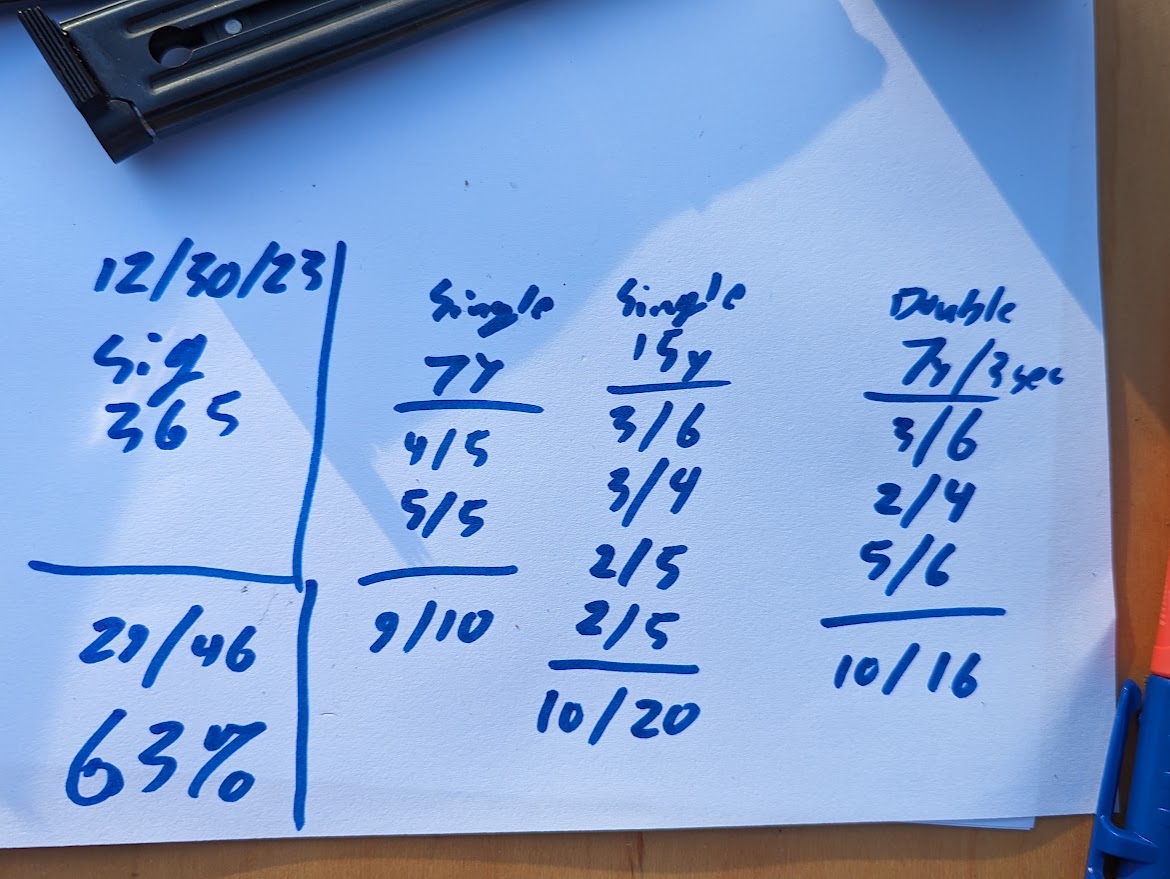Eminently Qualified Human, Part 2
Fitness, Firearms, First Aid, and Farming.
Austin Haedicke
881 Words | Read Time: 4 Minutes
2024-02-09 06:01 -0800
Most people following this page are interested in fitness and nutrition; but the point, for myself and my work, is to go much beyond that — “training the whole athlete.” This doesn’t just mean the “psychology of fitness”, “fitness of psychology”, “health psychology”, or any number of other trending buzzword topics. It means preparing, developing, and struggling with one’s self.
In November 2023 I reviewed Jocko’s EQH app and talked about becoming “eminently qualified.” I’ve since stopped using the app, but the concepts and principles remain. Excellence of human life requires competency, if not mastery, of multifaceted qualifications.
Mickey Schuch (aka @carrytrainer) sent out a newsletter in December 2023 that contained a simplified list of things to focus on in training:
- Physical conditioning. I’d strive to spend at least 30 minutes a day keeping myself fit, flexible and mobile. If you can’t move you probably can’t escape, fight, or help others in need.
- CPR. Practice once a quarter for a few minutes. It’s too easy to keep fresh on this life saving skill. See item 1 again. If you aren’t fit, you aren’t going to be doing chest compressions for very long.
- Stop the Bleed. It’s not just applying a tourniquet. I recently interviewed a trauma doc and former Army Ranger doc. He said, controlling hemorrhage would be his number one choice if he could only teach one thing.
- Learn a legitimate fighting art. I choose BJJ. I first walked on a mat in the late 90s. These skills are highly perishable. Find a good school and make it part of your life. It’ll help with item #1
- Learn to shoot a pistol. Have a good one and maintain proficiency. A couple of basic standards to shoot for, no pun.
- 2 shots from holster at 7 yards into a sheet of printer paper in 3 seconds.
- Be capable of hitting a piece of printer paper at 15 yards with 100% reliability.
I’ve talked about similar ideas before. Not everyone has to be a black belt, doctor, or professional sharp shooter — in fact, you probably won’t even if you wanted to. So, what’s the “minimum effective dose?” What’s “the most practical” training you can spend your time on? That is, how can you become a more effective or “eminently qualified” human?
From a civilian standpoint, you’ll probably never regret being too physically fit. Fitness, like martial arts, is a tool you take with you everywhere and has far fewer legal and other implications and restrictions than other implements (i.e. weapons).
Adding a few things like a HAM radio and a first aid kit in your car, a pistol on your person or at least in your home, and some sort of capacity for violence and how to avoid it are going to take care of a lot of problems and keep you and your loved ones alive in a lot of hairy circumstances.
Beyond Violence:
Shooting is Mickey’s career. Yet, notice that shooting was the last thing on his list of what to train. He didn’t specify in the newsletter if the list was ordinally ranked, but let’s put things in perspective.
There’s rarely a situation where you’d regret having more medical training. For example, hopefully you’re not getting into many gun fights as a civilian. On other hand car wrecks happen fairly often as do snake bites, seizures, heart attacks, etc.
How different would or could your life be (even or especially as a family!) if once per month you went to a training or event to make yourself safer, more resilient, or more sustainable?
For example, what if you made a 12 month calendar that looked something like this:
Lift weights 3x / week
Train endurance or martial arts 1x / week
Go to the gun range 4x / year (quarterly)
- Every-other year or when your carry permit, driver’s license, or on some other regular interval, go to a professional training.
Get CPR / AED certified
Get Trauma First Aid training
Go to a bushcraft or other wilderness / training
- Sometimes there are free or low cost options through REI
While you’re doing your taxes (annually), take time to learn about Bitcoin or otherwise establish financial stability.
Go to a workshop on homesteading.
Make a plan for natural and man-made disasters and practice them.
Photo by Zoe Schaeffer on Unsplash
Passive vs. Active Training:
Reading books, watching videos, and listening to podcasts are all great ways to accumulate knowledge. However, what is the difference between knowledge and wisdom? The answer is application and acquired experience, or doing, so called “street smarts.”
Our body and mind’s capacity for experience is much longer than that of knowledge. Think about the spelling bees and standardized tests all Westerners are required to suffer through. Memorized regurgitation is a notoriously poor indicator of long term career success and life satisfaction.
To improve a skill you must actively participate. That’s going to cost you a few bucks, but you’ll be developing real skills that you can see and feel real results from. The more you practice, the less you have to “trust” any given system because you’ve learned to verify it’s efficacy yourself.
Savage / Zen is a reader-supported publication. To receive new posts and support my work, consider becoming a free or paid subscriber.


